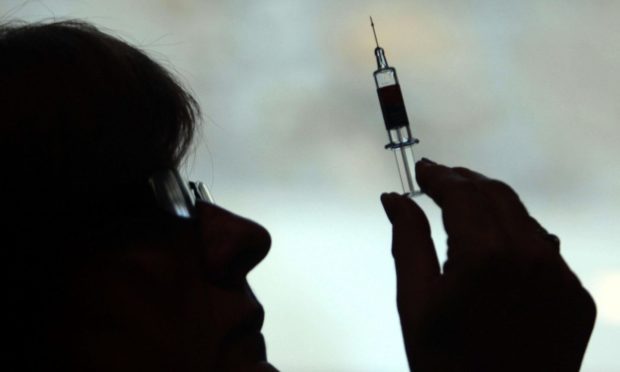It has been good to see the church hall being used locally, to help with the delivery of the vaccines. Those who volunteered to help with the safe flow of people in and out, did so with the idea in their head that they were doing good.
In the end they felt as though they were the ones who had been done good to; especially in the early days. Those who were the first to receive their jabs were those in the oldest age category who had been shielding.
Their reaction was, apparently, a joy to behold. For many of them it was their first outing in months and they made the most of the suitably masked and distanced chance of a blether.
As the rollout has worked its way down the age categories, there has been noticeably less of that almost giddy pleasure. Many of the “younger” older people have been able to get out at least a little and although the vaccine will make those outings safer, there was evidence of weariness in this slightly younger category than among those who were much older.
I confess I had thought it would be the other way around.
Perhaps it’s a case of those who have had nothing enjoying something and those who have had something, wanting more. It’s true isn’t it, that the more we have the more we tend to want – so that we end up being unable to take pleasure in the simple things.
I read an interesting blog post from a ministry colleague in the United States in which she speaks about the discontented weariness so many feel which carries, at its heart, a longing to get back to “normal”.
I have never met the Rev Julia Seymour, except through her blog, but she offers some interesting thoughts on the kinds of things that most of us see as pretty basic to life but which, in fact, are not basic at all but luxuries and privileges.
Her words brought me up short (shorter than usual). She talked of things such as being able to invite friends to your home without fear of consequences; of being able to browse in shops and pick things up and put them back down again without fear of harassment.
Is one life worth more than another?
She talked of the ability to send children to school, to enjoy a buffet dinner, to linger over a coffee in a cafe. All of these things are privileges, Julia argues, because not everyone is able to welcome people to their home. They may not have a home. They may have a home, but the kind of home life they don’t want others to see. Or they may not have physical or mental ability to welcome people. Likewise, having a school to go to is a privilege; being able to eat out, or even simply to have a coffee out, is a privilege not open to all.
And there are certain groups in society, certain economic, ethnic and age groups, which – it has been proved – are far more likely to be treated with suspicion in shops and on the street than others. We are not always aware of the struggle too many others have.
And that is just thinking of people within the UK. If we look beyond ourselves to other parts of the world, we will see others who have more than we do but there will be far more for whom our basics would be beyond their wildest dreams.
The temptation here is to let the word “but” slip into our head: But we are where we are, and they are where they are.
The question we need to address is whether we think one life is worth more than another.
To go back to vaccinations, there are countries, like ours, that have ordered vaccines way in excess of their population numbers. These governments have got in there first because they have the wherewithal to be able to order. Meanwhile, there are countries that simply cannot afford to and where the virus continues its rampage.
Aside from the (selfish) fact that unvaccinated people wherever they are in the world means the virus remains and will continue to mutate, there is that persistent and important question: Is one life worth more than another?
In recognising our privilege, we need to see and respond to the needs of others. Not just because we ought to. But because it is the human thing to do.
Count your blessings. And be that blessing.
The Very Rev Susan Brown is minister of Dornoch Cathedral and the former moderator of the General Assembly of the Church of Scotland
